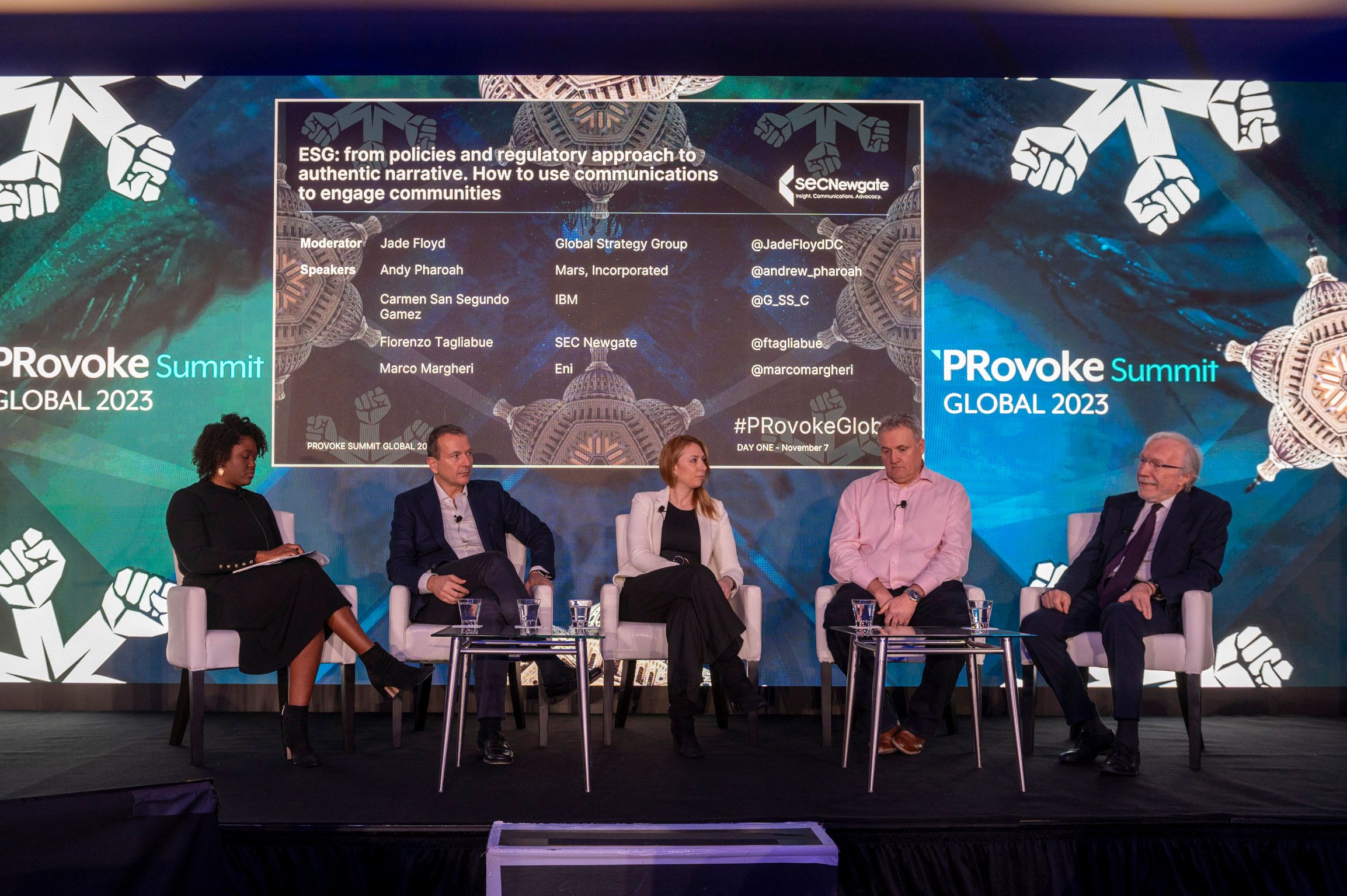Paul Holmes 07 Nov 2023 // 10:19PM GMT

WASHINGTON, DC—Communicators need to resist the temptation to lead into the polarization around environmental, social, and governance issues, Mars vice president of corporate affairs and sustainability Andy Pharoah told the audience at PRovoke Global today, during a discussion on creating authentic narratives around ESG commitments.
“You can get a lot of media coverage, but the more we allow the environment to be a polarized issue the more difficult it will be to achieve our long-term goals.”
He pointed to research conducted by Mars and IPSOS, which found that around the world 60-75% want to see companies prioritize environmental issues as much as they do economic issues—suggesting that there is perhaps more consensus on the importance of environmental responsibility that recent media coverage suggests.
Pharaoh’s perspective was supported by Marco Margheri, heead of US Relations of Eni and chairman of Eni New Energies US, who said that companies need to reframe the discussion to bring people together.
“In some cases ESG has meant the equation between new investment and the past,” said Margheri, warning that such a framing can create fear among people who feel that they will miss out during the coming transition. “We have to invest in the supply chains that we have today and help them adapt. We have to balance the promise of a long-term future with short-term commitments.”
Pharaoh also suggested that there are benefits to avoiding the term ESG. “It’s a jumble of letters and not the way people relate to the issues,” he said. “We provide lots of information, we have considerable reporting on our website, but we try to tell it in terms of stories that people understand.”
Fiorenzo Tagliabue, group CEO of session sponsor SEC Newgate, set up the conversation by citing research his company undertook across 12 markets.
“The international business landscape is dynamic and complex,” he said. “Factors like diversity and sustainability and ethical governance are critical. People are demanding companies be more involved in social purpose and to deliver concrete activities. “One of the clear findings is that companies cannot afford to ignore ESG issues. More than 70% of respondents agree that companies need strategies and actions to address ESG, and want companies to speak out on these issues.”
But he warned that companies need to put actions ahead of communications.
Responding to that, Carmen San Segundo Gamez, global marketing and communications director for ESG and CSR at IBM said that one of the challenges she faced was focusing the company’s communications on the most important issues.
“ESG for us is about impact on communities from environmental impact and social impact and also around the ethics of things like artificial intelligence. We need to communicate many issues and respond to many conversations that society is having. So we have a framework with 10 commitments that helps us focus on what is most relevant for the company.
“We are a B2B company. The end consumer does not always know about IBM. They don’t know our history and traditions—we issued our first environmental report 50 years ago—they don’t work with us on a day-to-day basis. Our recent report focused on a concept called ‘time travelers,’ relating what we do now to what we did in the past. It shows consistency of our commitment.”
That approach had increased page views and engagement, she said.
Pharaoh, meanwhile, emphasized the importance of hard targets and hard data. “We want to halve our footprint by 2030 while growing out business. We have targets around water and packaging and improving the lives of a million people in our extended supply chain. We embed it, and treat it like any other business metric.”



































.jpg)

















